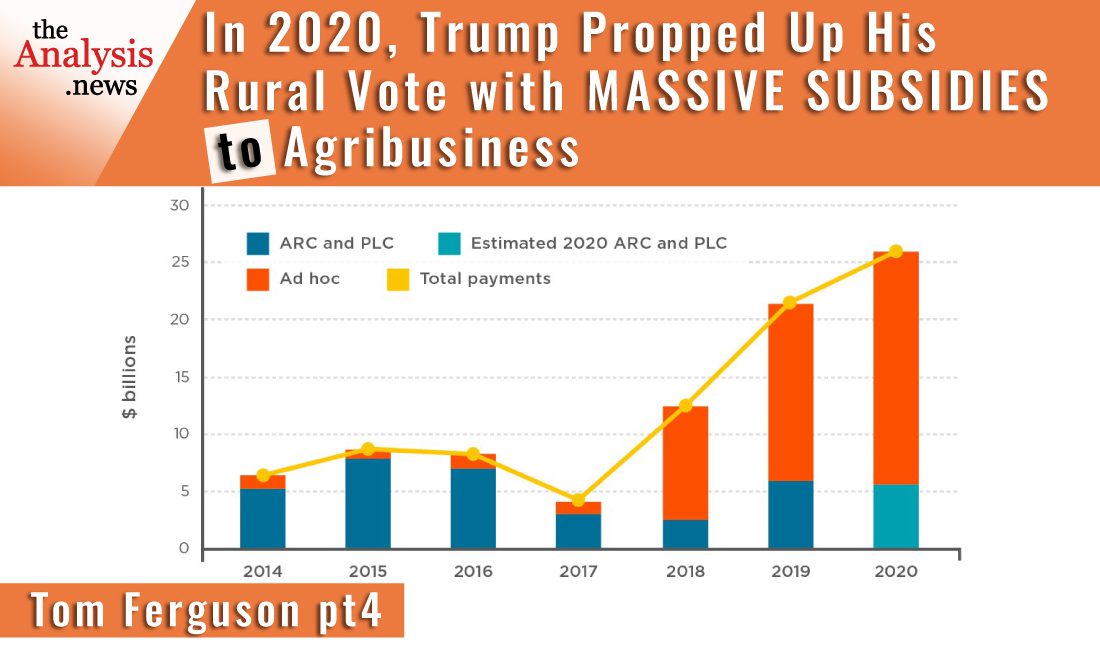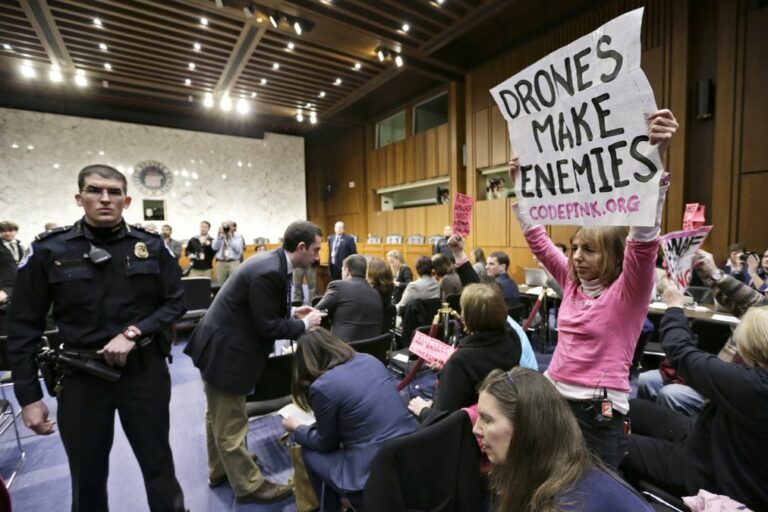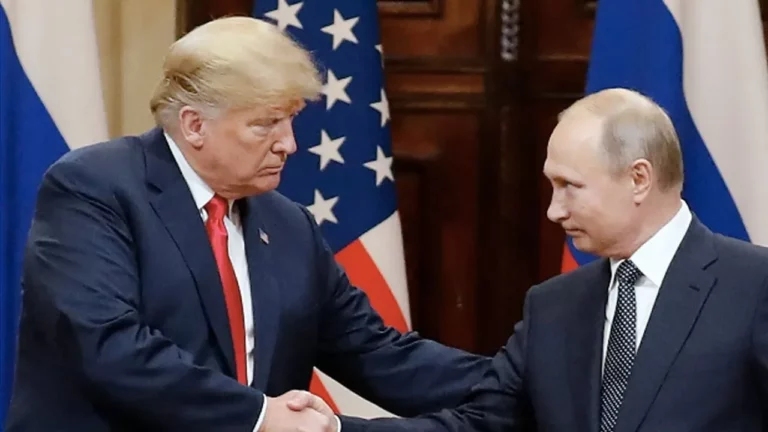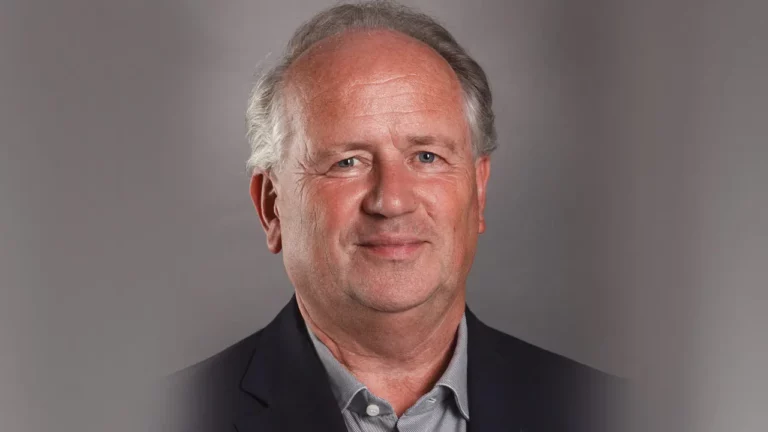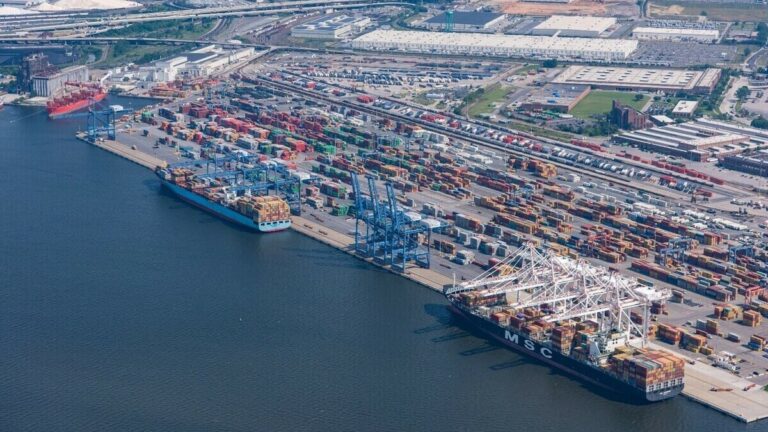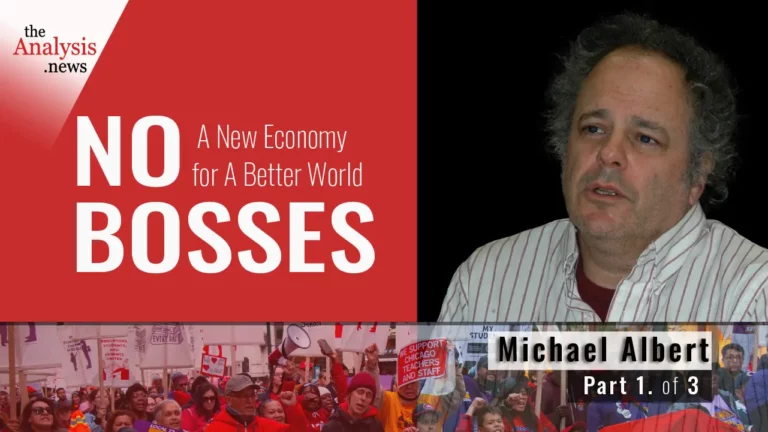In 2020, Trump Propped Up His Rural Vote with Massive Subsidies to Agribusiness – Tom Ferguson Pt 4/4
The Trump administration engineered one of the most remarkable agricultural political business cycles in American history. Tom Ferguson joins Paul Jay on theAnalysis.news.
Link to the article – https://www.ineteconomics.org/research/research-papers/the-knife-edge-election-of-2020-american-politics-between-washington-kabul-and-weimar
TRANSCRIPT
Paul Jay
Hi, I’m Paul Jay. Welcome back to theAnalysis.news. We’ll be continuing our series of interviews with Tom Ferguson about what happened in the 2020 elections and a perfect storm gathering in 2022. You could say for the Democrats, but for anyone that actually cares about climate, not that the Democrats are doing nearly what they should be doing about the climate crisis, but a re-election of climate deniers in Congress ain’t going to help matters very much. We’ll be back in a few seconds with Tom Ferguson.
Please don’t forget the donate button. I know it’s coming to the year-end, and people are looking at their taxes and some of you, I know not all of you, but we’ve had several people that are giving $5 – $10 a month and have had to cancel their monthly subscriptions because they actually have lost jobs. They can’t pay rent. And I just got to say thank you to those people who were donating right up to the last possible time they could.
But for those of you that are doing well, especially in the stock market and such, and you’re looking at donating some money, we are a 501 (c)(3) in the U.S. And if you’re not in the U.S., well, maybe you can donate anyways. We’ll be back in a few seconds.
So thanks again for joining us for part three of our series with Tom Ferguson, based on a paper he wrote together with Paul Jorgensen and Jie Chen. The title of the paper, which can be found on INET’s [Institute for New Economic Thinking] website, is the Knife Edge Election of 2020 American Politics Between Washington, Kabul and Weimar. Interesting title.
Here’s a quote from the paper:
“The case of agriculture is more complicated. No search for answers to the question of how Trump amassed more than seventy-four million votes can bypass this sector, which only a very small number of specialized media sources paid attention to around the time of the election itself. As will shortly become obvious, by 2019 Trump’s offsets to the consequences of his tariffs on agriculture were morphing into a much grander shift in farm policy.”
“Here again, still more advance cautions are necessary.”
I am still quoting the paper.
“Next to finance and perhaps defense, one might argue that agriculture constitutes the most important case of full throated socialism within the American economy.”
I don’t think Fox News would be happy with that characterization, but there’s a lot of truth to that.
“Federal government subsidies over long periods have played a vital role in the industry’s rise to world dominance and state aid remains ubiquitous. It is also noteworthy that the usual intense partisanship in American politics often seems to stop at the Farm Belt. A closer inspection will reveal a more discriminating picture, but the frequency with which farm state Republicans and Democrats close ranks in favor of lavish aid for big farmers, giant grain companies, specialized insurers, and other firms in the agricultural circuit is obvious. But this paper cannot review the tangled history; we must pass rapidly to how the Trump administration engineered one of the most remarkable agricultural political business cycles in American history.”
Now joining us is Tom Ferguson. He’s the Research Director of the Institute for New Economic Thinking and a Professor Emeritus at the University of Massachusetts, Boston. Thanks for joining us again, Tom.
Thomas Ferguson
All right. Glad to be here with COVID. There’s always options that I’m still around, so thank you.
Paul Jay
So pick this up. This issue of agricultural policies, and certainly in most mainstream media, has received no attention at all.
Thomas Ferguson
You’re right, nothing. The only thing you ever hear about is when [Barrack] Obama rejected Howard Dean’s proposal to build Democratic outreach in all the States in a big way and things like that.
Well, we stumbled into this one, and it was basically, if you read the literature on Trump, there is vast literature on international trade and what he did with it because he was definitely not conducting normal free-trade politics. Even with all the many qualifications to existing free trade, this was the most protectionist American administration in decades. And that generated an enormous amount of commentary, although note that very little of that actually reaches into the election analysis commentary in the major media.
It’s a very strong case where that discourse is dominated almost entirely by race and gender, and the trade stuff just falls out. Even though you look 15 degrees away from the election commentary and you see vast literature around the world on this. We were first interested in whether claims that were made that the trade policy didn’t really affect the election that much were true.
Paul Jay
Okay, let me just quickly add. This first and foremost is about trade tariffs and such against China and part of Trump’s whole anti-China rhetoric. And there’s a lot of speculation at the time this could undermine him in these rural districts, but later, people didn’t talk about it much.
Thomas Ferguson
Right, I remember a New York Times piece that was pushing the line that farmers were going to revolt. There were a lot of those, I would add, though, that the tariffs were not just on China. They hit many European countries and countries also outside of Europe, Korea, for example.
Paul Jay
And Canada.
Thomas Ferguson
Yes, our NATO ally, as they would say. Well, anyway, so the question was, did this matter in the end or not? The sort of short answer is we finally concluded, like a lot of other people, no, it didn’t matter a lot, hardly at all. Partly because so many of them came off, they were put on— although it’s not true that the Trump people didn’t think about their trade policy.
Robert Lighthizer and others were certainly thinking a lot about it. But when they implement policy, on the other hand, it’s almost pure Trump. It’s quite slapdash. One would say transactional. And you see, as a number of people have noted, just amazing changes between what the public announcement is, what’s finally implemented, and most of them come off fairly fast after the 2018-2019 big rises.
Okay, but in the process, it directed our attention to what was going on with the U.S. exports to China, of which agricultural products were large. In general, it’s not true to claim that, like the whole health of U.S. agriculture depended on exports to China, it’s not true. But for some crops, soybeans, for example, corn silage, a few others, they really did matter. Sort of like an explorer going up the mountains in someplace and seeing this territory that our colleagues had not really discussed much at all. We said, all right, let’s take a look at agriculture. So we reached out to the Agriculture Department, and nobody wanted to talk about anything there.
Eventually, we could sort of piece things together. But Trump people began by trying to do special programs to compensate in agriculture for the loss of the Chinese exports. Though that then morphed as COVID hit into a much broader agricultural bailout because suddenly the farm belt was being hit, not just in certain areas where the Chinese exports mattered, but they were being hit very generally. Just huge amounts of commercial sales, restaurant sales during COVID, it’s no secret, were not particularly high. And so they turned it into a general agricultural bailout. And they did that with a series of programs.
Now we found a way, finally, to analyze that because we were using county-level data. That was quite a research challenge, but people can read the paper. Here’s what we found out, which is very straightforward, which is that Trump just kept pouring money into this. People in agriculture, we looked at the literature and the news for agricultural specific news agencies and things like that, news centers. And people did quite often catch on to this. It just didn’t make it into the general media very much. There were a couple of things where it did, but nobody followed it up. You didn’t see any talking headed on election night or after that talking about it either. But in the end, it was a gigantic bailout on a colossal scale. I would accept the figures quoted by the economist that we cite in the paper. They have probably the largest agricultural political business cycle to speak loosely in American history. And the great revolt against Trump in the farm belt that people thought they were going to see didn’t happen.
Now, not everybody got the benefits of this. There were very clear political targeting there, like they left the apple producers pretty much out of it. Look at the apple producers, they knew it, and they were really complaining there. They left some others out. But it clearly helped keep up what the papers theme is, in no small part. It’s the peripheral areas of the United States, peripheral meaning out of the cities and often out of even the bigger suburbs. The Trump vote there is known to be strong. We’re not the first to observe it, but we go on to then just look at an interesting case. And this is really quite worth understanding because it is a warning against the shallowness of so much political commentary.
I mean, put simply, you have all kinds of people. Thomas Piketty, who should know better, keeps telling you that education really settles votes in most advanced industrial States and certainly in the United States. And the New York Times and many other places have picked that up.
The big story, it is said, is the educational divide. Well, there’s something superficially to that because of the way income is evolving over the last ten or 15 or 20 years. But when you look a little bit beneath that, you see something else. It is extremely interesting to look at what happens in, like, huge numbers of midwestern States over time.
Once upon a time during the high New Deal, they were nearly all for Roosevelt on the combination of the farm program and bluntly the spread of labour unions and industrial towns. What you see all over America, though, and it particularly hits those States in the farm areas. You used to have a viable Democratic Party. In the late New Deal, that coalition started to decay. It got weaker, but it didn’t disappear.
And I grew up in Ohio, actually, for a good chunk of my youth, and the Democrats were not out of the story there. When you go back and look at it, which I think would be worth doing in a little more detail, you could see that smaller farmers tended to vote, I think Democratic, and you could [inaudible 00:14:31] of them. Certain crops because the crop issues in these areas, in all farm areas, really matter to a much larger degree than just bigger small farmers often. But you could see then the labour vote in cities in Wisconsin, Michigan, Ohio, Iowa, and even Indiana were very substantial.
Now, what happens in the 1980’s, and the ’90s, and after is that the labour unions are blown away, and the whole manufacturing sector gets hit. And no doubt at all, that relocation of plants, imports and technological change combined. And you can see huge numbers of people trying to sort of spend all their time sorting those three out, instead of keeping their eye on the big problem, which is the disappearance of high-paying jobs there. So you blow out with industrial change, not educational change. Trying to understand this as a problem in education is simply crazy. That’s just not the problem. It’s a genuine industrial problem of transformation.
And similarly, in the farm areas, we document how vastly the farm sector changes. And in particular, most profitable farming now is done overwhelmingly by large, generally family-owned farms, and they got a huge amount. Though the family-owned here doesn’t mean mum, dad and the kids live on one farm. It means they own a whole bunch of farms and things like that. And then there are all these players that come in, not only banks, insurance companies, crop seed companies. There’s a big technological change there.
You find some political scientists talking about how, well, this is a pluralism, it’s going to work. Now, this is all pluralism among very big interests. And the short, blunt fact of the matter is that farming today is really dominated by a relative handful of large farmers all over.
And that leads us to our sort of really interesting conclusion as you study, like, for example, COVID patterns of illness and things. Meatpacking has moved out of cities into the peripheral areas. In many cases, the workforce for those areas are either Black or Hispanic. They were devastated in meatpacking by COVID, but more generally, they’d sometimes try to strike because the federal government under Trump was doing absolutely nothing to protect them. And under [Joe] Biden, it’s been less than adequate, I’d say. But they’ve at least done a few things, but some people have no recourse but to just strike.
Paul Jay
Can I interrupt here for a second?
Thomas Ferguson
Sure.
Paul Jay
As you say in meatpacking, some of the more labour-intensive jobs became more dangerous during COVID. And Trump, if there’s one thing, as your paper points out, that actually did sink Trump in the end because he might have won otherwise repeating the 2016 pattern of the vote. But COVID, really, in the end, sunk him.
On the other hand, nobody was more damaged by COVID than Hispanic and Black workers. And yet his vote went up amongst Hispanics, particularly. But even amongst Black men. How the hell did that happen?
Thomas Ferguson
The short, blunt answer is that a very substantial; now, first of all, I should say, I think you can put the basic elements of the answer straightforwardly. That paper doesn’t try to do that. There are just limits. Hey, it’s only 50 pages. We may turn it into a book, but we’re not trying to write a novel, at least right then.
But first of all, a large number of those workers are almost certainly not U.S. citizens. I mean, trying to get a handle on that is hard. It’s the famous difference between the voting age population and voting-eligible population in the U.S. States, but those are pretty large differences.
Beyond that, I think you’ll find in the rural areas, the whole weight of the legal structure is generally working on the side of the large farmers. So my suspicion is, this is a guess. But I think you’ll find large numbers of the workers are operating without American citizenship, not necessarily illegally, I would observe. But they’re not American citizens, so they can’t vote. And then I think a turnout depression in the rural areas where they are concentrated, not everywhere else, I think, is likely to happen.
So if you like the exclave character of this probably really matters. But that’s a bet, and it’s well worth asking. How do the Democrats plan to win in rural areas? There are large numbers of workers out there, including white workers, I would note. They’ve lost jobs. It’s no secret that these types of peripheral areas see a good deal more drug dependency of various types, opiates and things.
But their question of how the Democrats build a majority there if they’re not going to seriously embrace unionization in the rural areas is well worth asking. And you have this old impression of the Democrats as favouring agricultural unions, that’s really derived from Robert Kennedy and company in the ’60s, in California.
Farm unionization is now just a micro portion of the agricultural workforce and huge numbers of people we know, especially in California, just come in under programs from other countries. So what are the Democrats going to do about this? I’m not clear that they have any desire to pick up here.
Paul Jay
Yeah, I think when they encounter districts that are a “Republican lock,” they don’t even try. They just move on. They don’t want to spend money on it.
Let me ask you another question. What you said off the top about one of the most socialistic things the government does are these massive farm subsidies. First of all, it’s not really going to small farmers. As you said, there are hardly any left.
Thomas Ferguson
And this Paul, agricultural extension programs, which are really important. You have to think of these as a sort of special form. There’s a great paper by Louis Ferleger, and Bill Lazonick on this, which just treats it as, hey, here was America’s first developed industry. And the sense of an industry blank, including agriculture. This was a developed success in world markets. That’s right. But the bulk of that research, as a number of folks have emphasized, it’s a backstop for large farmers. It does not work well for poor farmers at all.
Paul Jay
So big agriculture, because that’s what it is. Big industrial agriculture gets subsidies. And, of course, the other sector that gets tremendous subsidies, particularly under Trump, although Biden claims he’s going to undo them, but I’m not sure that he actually has, is fossil fuel subsidies. And those sectors obviously really went to bet for Trump.
But you talk about how it emerged as a more consolidated, pro-Republican bloc, perhaps than even in the past.
Thomas Ferguson
Well, all right, look. I will tell you because I’ve actually done the research. Like I’ve read a lot of bank papers, and you will find in the early 20th century, I remember a quote from one Morgan partner who was just saying, let’s face it, we win elections, it’s sort of insane, but it’s true.
This particular guy was a voting Democrat. I’ve dealt with that stuff and some stuff on the New Deal. I’m not going there now, but he was just basically saying, look, the Republican Party is really funded by urban business interests that then make alliances with the farm areas.
Now I can tell you this. I remember this story very well because I won’t say how I first encountered this, but when Standard Oil of New Jersey tried to get control of the Texas legislature, what they did is they hired a very famous Texan to go out and put all the rural legislators in business, which he did. That guy later became Lyndon Johnson’s Ambassador to Australia, and his son’s student, who was his intern, took a class from me. I actually talked about this. He took it back to [Edward A.] Clark, who said, oh, yeah. According to the student, I have no direct ever with that Clark.
Anyway, this type of stuff is like the essence of conservative American politics, but it’s also the essence of modern conservative politics all over the developed world; same story in Austria, Germany, France and Spain. When the Americans were trying to export their version of democracy to Spain, I happen to know they helped subsidize a string of public choice; I think they call it. In the literature, folks went over to Spain to help write the Constitution.
One of those folks told me how they had overrepresented the rural areas in there. More broadly. We should pick up on this because I just saw this sort of thing put by very earnest people in the New York Times the other day. Which is a tendency to sort of say, America is in a crisis because it has a very old Constitution that overrepresents small States with relatively few people, and they could. And it will often end, oh, and they’re not urban, and that’s true. And that’s absolutely true. But what you actually have here is a swarming money and politics problem in which these 200-year-old rules, like, if you get hit by a tidal wave of money and then the whole landscape gets reshuffled. If you didn’t have that tidal wave of political money, you get very different outcomes, I am sure.
And it’s just when you read about how the problem is to sort of change the rules, you need to remember the biggest rule you need to change are the ones about political money. And if an essay doesn’t have political money in it, don’t take it seriously. No matter how earnest and well-intentioned, it is about the mere problem of democracy. You can’t have a seriously Democratic modern State if you cannot control political money.
Paul Jay
If you look at who owns big agriculture, and you look at who owns fossil fuel, and you look at who owns almost everything that’s on a stock exchange, a major component, if not majority, obviously comes right back to the financial sector.
And the financial sector seems to have these two parties like horses, where sometimes it serves their interest to put the money into Republicans in the rural area because they also have investments in agriculture. Another time they put their money over here, the Democrats. But the role of the financial sector, and I’m not saying this is some monolithic cabal that has everything perfectly planned out. A lot of it happens spontaneously. There’s different personalities. But on the whole, the financial sector actually is what’s behind all of these sectors. And they play this political game as it suits them.
Thomas Ferguson
Well, my only quarrel with that is, hey, finance, Silicon Valley, those events, sure. Otherwise, I’d say, look, I’m sorry to sort of, and I actually hate book promotion. I just can’t stand people, but I did write a book about this.
Paul Jay
Go ahead, promote the book.
Thomas Ferguson
No, we’re not. Let’s change the subject. But, yeah, I don’t disagree with this. In fact, you can see very plainly just how— I do think that one major consideration in the days leading up to January 6th was the feeling in the business community. No, they don’t want to be stuck with Donald Trump and a kind of authoritarian [inaudible 00:28:34] style. We will not go to the German terms for that or the Italian terms. They don’t want that kind of a regime. They got a perfect system right now where these guys come and go, and they’re mostly guys. But the women have now gotten into the act, too, in a big way. You only have to look at Gina Raimondo yesterday, or the other day, on European Union restraints on American Silicon Valley firms to realize the women are in it, too. And that system works for them. That’s why I am not among those who think the natural tendency of political systems in the modern world is necessarily there. They are authoritarian, but they’re not strong if you’ll allow the expression here, strong man or strong woman. We have yet to see that. That’s not everybody in the business community’s first choice. Let these people take the fall. You get this whole magic theatre. I mean, it’s like Hollywood. It’s almost Hollywood in spades, and it appears to be real.
Paul Jay
Well, I agree with you so far that’s the case. The American elites, they don’t want one sector of the elite to become so much more powerful than the rest of them. There’s so many multi-millionaires and so many billionaires and such a big corporate sector. They don’t want a little cabal around Donald Trump to get extraordinary power, even if they get what they want. Like Larry Fink said that Trump fulfilled the entire bucket list of BlackRock.
On the other hand, BlackRock and the others had had enough of Trump, especially after he didn’t want to have a peaceful transferring of power. But they more or less had enough of him in the lead up to the election. They certainly had not had enough of the Republican Party, as you pointed out. That said, they don’t want some ultra-centralized, authoritarian type of power in the U.S., at least now. But I had dinner with you, god, it must be two years ago or more in New York.
Thomas Ferguson
It was before COVID.
Paul Jay
It was before COVID. Not too long before COVID, actually.
Thomas Ferguson
And what did I say then?
Paul Jay
I asked you a question. The primaries were still on. Bernie Sanders was doing well. Elizabeth Warren was still in play. And I said if the elites have to choose between a real wealth tax that Sanders and Warren were talking about, or a real, increasingly authoritarian, even almost a kind of, you know they have this socialism with Chinese characteristics. So fascism with American characteristics. They might choose fascism with American characteristics over a serious wealth tax. And you thought that’s kind of where they were at. They wouldn’t allow a real assault on their wealth. They would go for authoritarianism first.
Thomas Ferguson
All right, Paul, but since you’re now bringing that subject up and look at what happened—out popped a Jack in the box one, Joseph Biden. And that was the end of Sanders and Warren as presidential aspects. What can I say?
There’s still some, where if you like life in the system from that somewhat demented perspective. And look, it’s not just a question about wealth taxes, right? I mean, business communities are not willing to accept even a modest rise in the income tax that Biden proposed. And it’s really crazy.
Paul Jay
Well, some of them are. There seems to be a split. I mean, this BlackRock guy is a Senior Adviser to Biden. Some of the financial sectors did seem, at least earlier on, willing to accept a certain amount of tax rise, but they really don’t like all the other stuff.
They don’t want increased regulation and maybe the most important thing, and I keep asking this question, how can they possibly understand the urgency of climate and keep pouring money into a party of climate deniers and let them retake Congress?
Thomas Ferguson
Well, of course, that’s where things start to split. This gets fairly complicated. But I begin by observing that, I want to still insist, to my knowledge, no major business association in the United States has been willing to support the Biden tax plan. And there are some folks who are willing to see parts of some stuff, even on climate, but nothing else.
And the personal income, there’s no constituency there in the business community at all. Also, talk is cheap. There is this kind of funny leading two-year cycle and a four-year cycle where we all talk big before the election. After the election, the talk fades, and then they actually have to go make policy that has misled people into talking about the difference between election and governing coalitions and things like that. It’s usually the same folks, actually, to look because I actually do look.
But anyway, so what can I say? If you’re thinking that you’re going to be rescued by a farseeing business community, well, you’re not. Which may actually bring us to a very interesting discussion of where Biden is headed. I don’t know whether he will get his cut down. We’ll call it the human capital bill that is pending in Congress. Out or not. President [Joe] Manchin, one might say, hasn’t yet come down the hearth. He’s been signalling; he will hold it up till January. Who knows, they may get it out. It’s been so truncated at this point. It’s a severe loss, as you indicated earlier. But that means we are sliding into a situation partly not of the administration’s making involving both economics and foreign policy, but also heavily influenced by them, both in which you’ve got whole new ranges of pressures on ordinary people, and they need to move with that.
We, I think, briefly discussed inflation before. It is my slogan on this. And I think all the latest numbers just reinforce that. We don’t have a wage-price spiral. We have a price-wage spiral. I mean, it is perfectly obvious.
Now, Elizabeth Warren made some statements that some parts of the business community took exception to. You could rephrase what she said in terms of price theories, which is that a lot of these folks, particularly the people using algorithms and the widespread application of computer models to sort of do pricing. And there are a lot of companies experimenting with that.
Those folks have learned how to do prices in a lot of changing conditions. And so when you suddenly give them, they are confronted with a supply shortage, which they didn’t necessarily make. They know-how. They learn real fast how to take advantage of it. And so I’m not very surprised to find that everybody’s noticing the way business profits are soaring.
The administration is going to have to deal with this. There have been some folks trying to argue that low-wage employees got some raises. They did. They were also given very substantial aid in the early phases of the Biden rain. But that’s over now, or nearly all. I mean, most of the healthcare provisions, emergency provisions, they’re gone. People are having to pick up a lot more bills, and we haven’t solved the COVID problem. We haven’t solved much of anything, and it is now hitting.
You’ve got, in effect, COVID without the emergency provisions that tided the population over for the first two years, and they’ve actually handed out money to schools but not done the kind of implementation and guidance they need for things like ventilation?
Paul Jay
Republicans are trying to tie inflation to the subsidies, but my understanding is the majority of the, at least half of inflation is coming from the rise in fossil fuel. The other big part is supply chain issues. It has next to nothing to do with either the earlier COVID subsidy or the increase in wages. Am I right about that?
Thomas Ferguson
Yeah, I don’t believe that anybody’s subsidy under the COVID thing did very much. The only thing it did do, you could say this if you got a supply chain problem and goods. The service problem is if you try to do your service, you may catch COVID. That’s a different story. But to the extent you’re trying to buy goods, and you have a service problem, and you’ve got some money saved, then you can see an explosion of people trying to buy, I’m going to make it up. Christmas toys or something, and they can’t get them.
I mean, now it’s a limited but real demand poll story, which companies that can take advantage of their ability to price will take advantage of it. But you don’t fix that by making everybody poor.
Paul Jay
Okay, let me just ask one final question because we’re getting near the end. Is there anything Biden, number one, the Biden administration can do to reverse this 2022 perfect storm? And what should the progressive Democrats in and out of Congress be saying perhaps differently than they are?
Thomas Ferguson
Okay, well, the Biden folks finally did something that I was calling for. I can even point you to interviews. I just said these people should be opening the Strategic Petroleum Reserve. And then they did it for one day. There were guys that were like, well, this didn’t do anything. In fact, it did. Prices are down.
You got to make speculation on both food and oil, not a one-way bet. And they should have moved again to pick up a thing I was emphasizing for some months. They need to put some position limits in the speculative. [crosstalk 00:40:03]
Paul Jay
That was my next question. How much is the speculation on commodities forcing prices up?
Thomas Ferguson
Hard to tell, but you can be sure when it’s all one way back. The whole world gets into that. I always remind people of what happened when AIG [the American International Group Inc] had to liquidate after it had to be bailed out by the U.S. government. It was told to liquidate its entire portfolio. I think it was just agriculture, and every price on the planet crashed that day for a while because they had so much of it.
No, they should have been on that actually quite some time ago, and they’re finally getting to work on it. They have made some moves to make specific sectors sort of clean up their acts a bit to make them function better. They’re slow on that. I would have militarized the ports. I would not have sat around waiting for months. And people, now, to be fair, they did try to do some things, and they did help.
I do think the supply side stuff will probably get a bit better next year, so they could hope for some improvement just by that. But they need to pick up on this problem of how are they going to support people while they haven’t mastered COVID? I think that’s a real problem.
Paul Jay
Okay, well, let me ask a final-final question. It’s not related to the paper, but this reluctance to get rid of the filibuster in the Senate. The Senate is so fundamentally un-Democratic. It’s a ridiculous institution. I mean, they shouldn’t even be hosting. I mean, there’s so many reasons Biden should not be hosting a democracy conference, but one of them is the stupid structure of the Electoral College and the Senate. There’s nothing you can’t get more un-Democratic than both of those institutions.
That being said, if they don’t deal with this issue of the filibuster in the Senate, what happened to Obama is going to happen to Biden. And is it simply that the financial sector, who are the backers of the Democratic Party, don’t want this? I think it was the intercept, at least a phone call, a transcript of a phone call between Joe Manchin and some of his donors. And in it, the donors were asking, telling Manchin, make sure they don’t change the filibuster rules.
Thomas Ferguson
Yeah, but look, this brings us back to— the corporate Democrats are bigger than finance. Telecom, Silicon Valley, and defence folks will be found there in abundance. It’s just in general, yes, conservative business interests, if you like, generally love the filibuster and the whole design of the Senate, because if you got a lot of money, it’s sort of like economizes. You don’t have to buy the whole place. You just buy the—
Paul Jay
Small States.
Thomas Ferguson
Enough to block it. It’s much easier that way.
Paul Jay
Small rural States, and you control the country.
Thomas Ferguson
But you should appreciate I mean; one has to be appreciative of Biden’s problem, which they couldn’t get on the abolition of the filibuster through the Senate. I think we are moving to this situation. It’s basically what happened when Franklin Roosevelt’s first New Deal collapsed.
The whole first package of the New Deal, like the National Recovery Act and things like that. In the spring and summer of ’34, it all went to pieces, and it was eventually voided by the Supreme Court. But the support it had initially attracted both business and the rest of the population, had already dissolved.
I wrote about this in that old normalcy, the New Deal paper that said Golden Rule and the old International Organization article. But the thing is, what then happened? I saw this myth of the strong President speaking to people being put out in the New York Times just the other day. That’s not what happened. What actually happened was the AFL [American Federation of Labor] split. The CIO [Congress of Industrial Organizations] formed, and people went out on strike in large numbers and many other organizations actually then rose up.
Now there were major developments where, as the business community had to choose, particularly over free trade and protection, where the free traders would come over, and the whole oil industry got a big boost from the way Roosevelt picked up on the Connally Hot Oil Act. The bottom line is they kept the price system that was installed in the NRA [National Industrial Recovery Act] for the oil industry for a generation. Actually, I wrote that one. That’s just the point I keep emphasizing. And people just don’t want to talk about it.
It wasn’t presidential leadership that brought you the second New Deal. It was the organization of the population that changed the power equation and included reacting back into the business community. If something like that doesn’t happen, unless a miracle happens, and you can somehow unsnarl all the supply shortages because I think the economy will grow pretty reasonably.
You’re still looking at very high real rates of growth because you’re coming back. But COVID keeps stopping. You get this stop-go pattern. And now you get people even actually claiming, well, it’s not as though COVID is the worst thing that happened. Well, that’s, in effect, the trade-off between profits of COVID. They should be pretty clear about that.
But no, I think the failure of the progressive movement to a very large extent. I could never understand why they didn’t bird-dog worker safety more than they did. They did push to push to put on the Biden COVID folks to make OSHA [Occupational Safety and Health Administration], somebody from OSHA represented there. I know because I pushed on that indirectly through a bunch of people, and that really happened.
But you just do not see the leadership on COVID policy coming from the press. It’s like they just sit there while the Biden administration stonewalls on the world getting vaccinated. It’s cutting, in my opinion, too. It’s being too nice to the vaccine companies, and it’s making some pretty fundamental errors in that they should move to get some good data collection.
They can’t even really tell you who has what kinds of COVID, where they have ramped up their testing, but nowhere near what they should have. I could go on about this. Where were the Progressives?
Paul Jay
We did talk about this in the earlier segment. All right, well, listen, we’ll pick this up again soon, but the bottom line is just a quick answer. We’re still looking at this perfect storm in 2022.
Thomas Ferguson
A perfect storm could sink all boats. Sorry to say.
Paul Jay
All right, thanks, Tom. Thank you for joining us on theAnalysis.news. Please don’t forget it’s the end of the year. If you’re thinking about donating some money, we are a 501 (C)(3) in the U.S., and if, at any rate, we could certainly use your help, please subscribe and spread and share and all the rest. Thanks for joining us.
END
Podcast: Play in new window | Download
